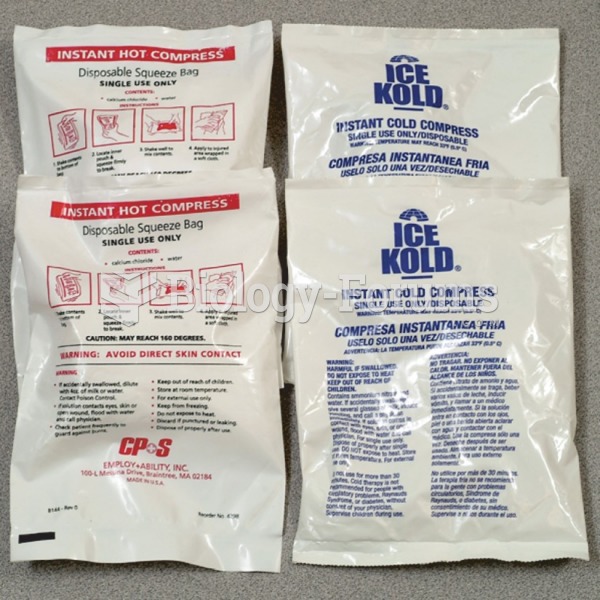|
|
|
A strange skin disease referred to as Morgellons has occurred in the southern United States and in California. Symptoms include slowly healing sores, joint pain, persistent fatigue, and a sensation of things crawling through the skin. Another symptom is strange-looking, threadlike extrusions coming out of the skin.
Thyroid conditions cause a higher risk of fibromyalgia and chronic fatigue syndrome.
The lipid bilayer is made of phospholipids. They are arranged in a double layer because one of their ends is attracted to water while the other is repelled by water.
The familiar sounds of your heart are made by the heart's valves as they open and close.
People about to have surgery must tell their health care providers about all supplements they take.







